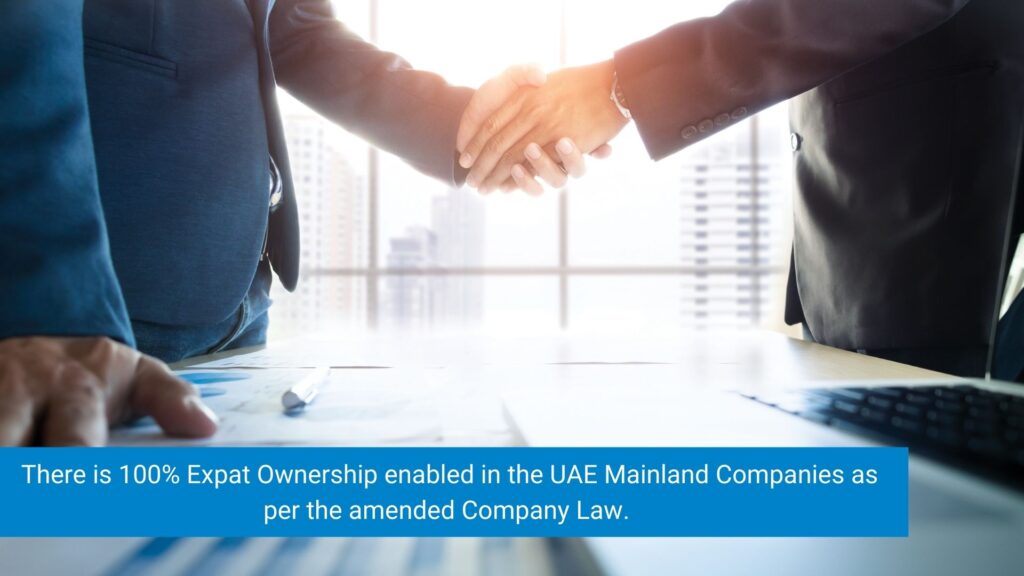Company Laws in UAE that Every Entrepreneur Needs to Know
UAE is a perfect business destination for entrepreneurs to establish a company seamlessly. With a growing business infrastructure, business-friendly policies, Government Initiatives to promote business, secured banking networks; UAE has it all for an investor to easily kick start their business operations and expand the business.
However, for the businesses to not have any hassles in the course of their regular business operations, knowing the business regulations in UAE are essential. UAE has several regulations in place for smooth and transparent business operations.
The Entrepreneur must comply with the Company Laws that will:
- Govern the business
- Protect Labour rights, consumer rights, and intellectual property rights
- Protect the health and the environment
- Govern the Free Zone that the business is established in.
1. Economic Substance Regulations
The Economic Substance Regulations (ESR) is in line with UAE’s commitment to international tax cooperation and transparency.

All companies in the UAE’s onshore and Free Zones that carry out any of the ‘Relevant Activities’ listed in the regulatory framework must submit the ESR file. Also, these companies must have an adequate ‘Economic Presence’ in UAE and will have to undertake the Economic Substance Test.
To know more, read about Economic Substance Regulation in UAE
2. Business Regulations in UAE
Businesses in UAE are governed by two major Business jurisdictions the Mainland and the Free Zone depending on where the company is established. Each of the business jurisdictions has its own governance and policies that the businesses have to adhere to.
Business Regulations for Mainland Companies
The companies operating in the mainland of UAE are governed by the Federal Law No.2 of 2015 on Commercial Companies.
Business Regulations for Free Zone Company
The businesses operating in a specific free zone will be regulated and governed by the policies of the free zone. In some cases, it might be additionally governed by another government entity.
Law on Bankruptcy
Business bankruptcy in the UAE is governed by Federal Law by Decree No.9 of 2016. The law provides a legal framework to help distressed companies in the UAE avoid bankruptcy and liquidation through various mechanisms such as:
- Out-of-court financial restructuring
- Composition procedures
- Potential to secure new loans under terms set by law
- Conversion to the declaration of bankruptcy and liquidation of debtor’s assets
Changes to UAE National Minimum Ownership Law – 100% Expat Ownership in UAE Mainland
The recent company law amendments state that there is no requirement of a UAE national for establishing a company in the mainland of UAE. More than 1000 business activities are on the positive list which allows 100% ex-pat ownership.
For a service company in the mainland for there must be a local service agent appointed by the company for an annual fee.

The local Agent does not have any control over the shares or the business operations but will act as a liaising agent with the government during the trade license renewals.
Ultimate Beneficial Ownership in UAE
Based on the UAE Government Cabinet Resolution 58, 2020, the Ultimate Beneficial Owner Procedure is for increasing corporate transparency.
The resolution is applicable for all legal entities that are registered in UAE Mainland and the Free Zones. The entity must keep the details of their owners ready at their office premises and must file it with the authorities. Any change in the register must be notified to the authorities immediately.
Filing Ultimate Beneficial Ownership
The reason for filing for UBO is to reduce the chances of monetary fraud at corporate levels. unregulated industries can get into financial transactions that can be harmful to the country. Declaring the shareholders of the company as Ultimate Beneficial Ownership can avoid all illegal transactions and curb money laundering to a great extent.
A person or party owning more than 25% of a company share or the person who benefits from the transaction made by the company in UAE must be registered as the Ultimate Beneficial Owner of the company.
VAT Registration and Filing
Business residents in UAE must mandatorily register for VAT who have a turnover of more than AED 375,000 in the last 12 months. Also when a company’s turnover exceeds more than AED 375,000 in the next 30 days they can apply for the VAT registration.
Businesses in UAE can voluntarily register for VAT if the turnover or expenses (subjected to VAT) were more than AED 187,000 in the last 12 months or the company expects the turnover to exceed AED 187,500 in the next 30 days.
UAE Cabinet has defined certain Free Zones as Designated Zone. It is treated outside the scope of VAT when the goods are transferred between Designated Zones.
Filing the VAT Returns in UAE
At the end of each tax period, VAT-registered businesses must submit a VAT Return to the Federal Tax Authority (FTA). A VAT Return summarizes the value of supplies and purchases a taxable entity has made during the tax period and shows the person’s VAT liability.
The VAT filing is either monthly or quarterly depending on the annual turnover. If the annual turnover is less than AED 150 million, It can be submitted quarterly.
To know more, read VAT Registration in UAE
Excise Tax in UAE
Excise Tax was introduced across the UAE in 2017 as a form of indirect tax levied on specific goods that are typically harmful to human health or the environment.
The rate of Excise Tax on various items are:
- 50% on carbonated drinks
- 100 percent on tobacco products
- 100 percent on energy drinks
- 100 percent on electronic smoking devices
- 100 percent on liquids used in such devices
- 50 percent on any product with added sugar or other sweeteners
Hence, businesses engaged in the following categories must be registering for Excise Tax.
- Import of Excise goods into the UAE
- Production of Excise goods where they are released for consumption in UAE
- Stocking of the Excise goods in UAE in certain cases
- Overseeing an Excise warehouse or designated warehouse storing Excise goods
Businesses can register for Excise Tax through the FTA Website, Aurion will assist in registering for Excise Tax in UAE.
To know more about the Business Laws in UAE that are applicable to your company. Talk to our expert Business Consultants right away!
Contact Us: Aurion Business Consultants







1 Response